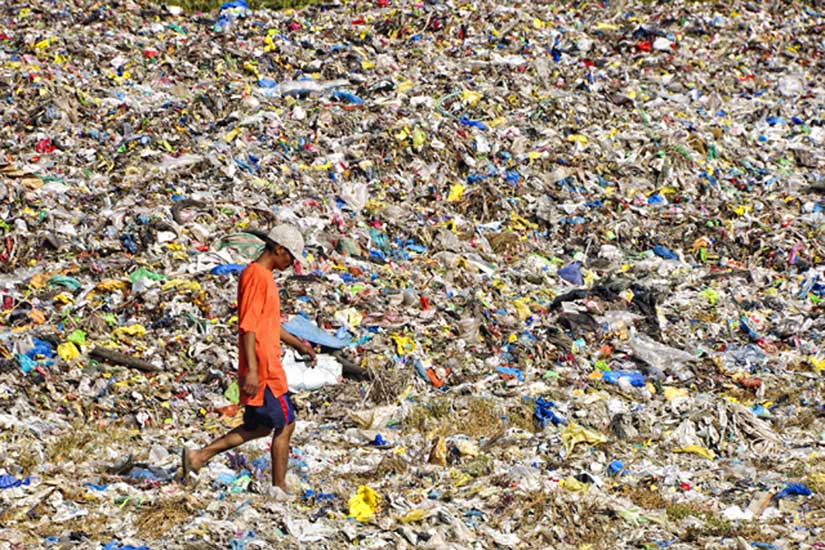Startups trying to solve plastic problem receive support from WWF, investor groups

Five startups working on a different piece of the plastic waste puzzle will receive support from World Wide Fund for Nature Philippines (WWF-PH) and several investor groups.
AtoANI BioPack, AUDEO, Cloop, Nanolabs, and Salin PH were selected from a pool of enterprises that were part of earlier incubation programs by makesense, a social entrepreneurship community; and The Incubation Network (TIN), a connected network of innovators, investors, organizations, and government leaders across South and Southeast Asia.
“While all the innovations and business models in the pool were promising, these five enterprises were selected because the entrepreneurs behind them expressed their commitment to solve the problem, embark on this learning journey, and move their enterprises forward,” said Love Gregorie M. Perez, director of xchange, an active investor in early-stage impact enterprises in the Philippines.
AtoANI BioPack is working on packaging alternatives made from agricultural waste, Salin PH is working on finding a refilling model that is scalable, while AUDEO, Cloop, and Nanolabs are taking plastic waste and using them in innovative ways to come up with value-added products.
Plastic pollution threatens communities, marine life, and the Earth’s ecosystems. An October 2020 WWF Philippines report estimated that about 2.15 million tons of plastics are generated annually in the country. The average Filipino generates about 15.43 kilograms of plastic per year. Packaging wastes that are commonly found in wastes streams include packaging for consumer goods, disposable food containers, and multi-layered sachets.
TINGI MENTALITY
Until August, the five enterprises are undergoing a program with activities on innovation and systems thinking, marketing, accounting, strategic planning, the circular economy, gender lens investing, and pilot designing.
“It’s been a learning and collaborative process especially during a pandemic. We learned that there are many ways to solve the plastic problem, so clarity is key because it provides direction. Going in the right direction is much more important than scaling because we have to consider social and environmental issues; we have to be more inter-sectional. With a possible ban on single-use plastics, it’s important to start opening conversations with key stakeholders to ease the transition by collaborating on possible solutions,” said Donna Formalejo, cofounder and chief creative officer of Salin PH.
Among the mentors are TJ Agulto of AHA! Behavioral Consulting, who will conduct a masterclass on understanding behavioral science and applying these concepts to drive behavior change in individuals and organizations towards zero waste and the circular economy. Another is Marie Torres of Investing in Women, who will conduct a masterclass on understanding the principles of gender, diversity, and inclusivity and how these impact businesses.
The role of impact entrepreneurs is to ideate, test, and execute innovative market-based solutions, said Czarina Constantino-Panopio, WWF-PH project manager for Plastic Smart Cities and national lead for the No Plastics in Nature Initiative.
“We acknowledge the tingi mentality is something that has been instilled in Filipinos due to reasons of buying capacity and current need for the item,” she told BusinessWorld in a separate e-mail interview. “We want to come up with ways on how Filipinos can still buy in tingi while taking in consideration the environmental impact of these plastics. What we want to emphasize is that sustainability is something that is also economical.”
Apart from working with impact entrepreneurs, WWF is also working with other stakeholders to address the Philippines’ plastic pollution situation. This includes working with policy makers to advocate for an Extended Producer Responsibility where producers take responsibility for the full life cycle of the plastics they bring into the market.
“We believe that we need to work with stakeholders in the entire plastic value chain to stop plastic waste leakage into nature,” added Ms. Panopio. — Patricia B. Mirasol



